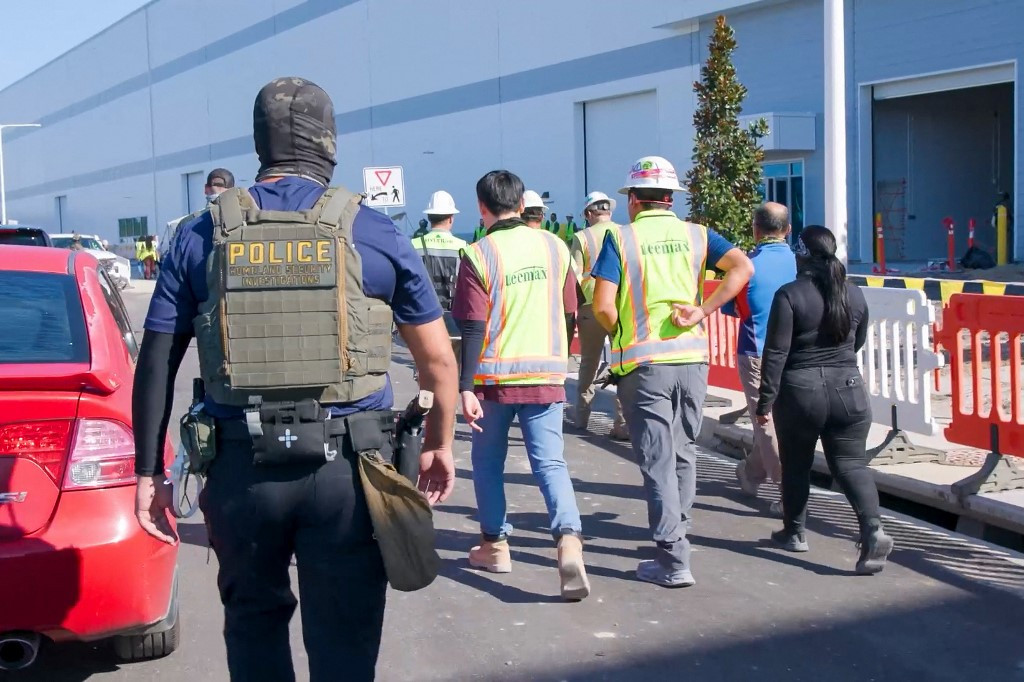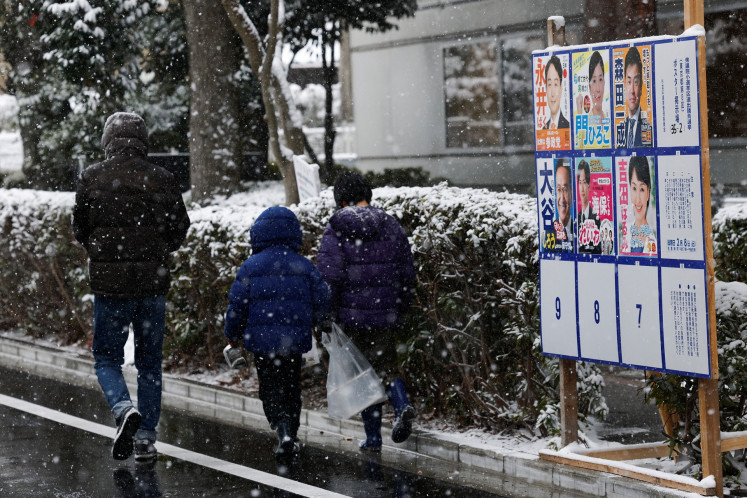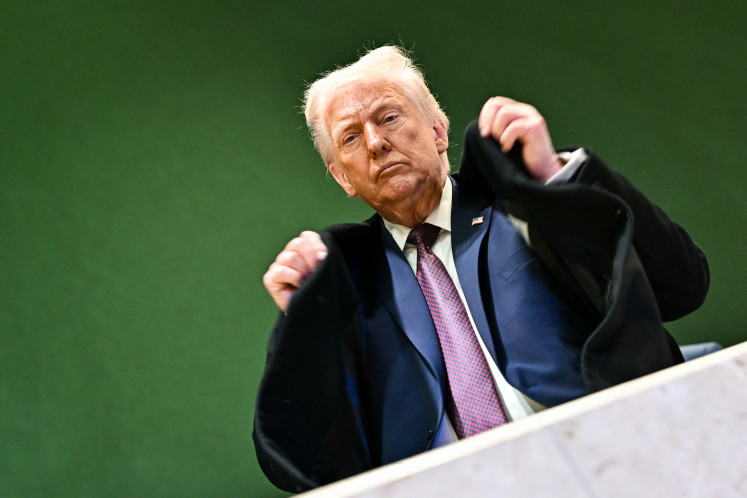Popular Reads
Top Results
Can't find what you're looking for?
View all search resultsPopular Reads
Top Results
Can't find what you're looking for?
View all search results'Betrayed': South Korea shaken by US immigration raid
Seoul has urged Washington to respect the rights of its investors and is sending a plane to bring home its affected citizens, amid mounting anger at home over the incident.
Change text size
Gift Premium Articles
to Anyone
A
massive US immigration raid on a battery factory that ensnared hundreds of South Korean workers has left many of the Asian nation's lawmakers and investors feeling shaken.
Seoul has urged Washington to respect the rights of its investors and is sending a plane to bring home its affected citizens, amid mounting anger at home over the incident.
AFP takes a look at what we know:
What happened?
US immigration authorities targeted the construction site of a Hyundai-LG battery factory in the southern state of Georgia on Thursday, arresting some 475 people including South Korean workers.
Officials in the United States called it the largest such raid on a single site carried out so far under President Donald Trump's nationwide anti-immigration crackdown.
Footage released by US authorities showed detained South Korean workers in handcuffs and with chains around their ankles being loaded onto an inmate transportation bus.
The raid caught Seoul's officials off-guard and made front-page headlines in South Korea, which has pledged hundreds of billions of dollars of investment into the United States in an effort to swerve Trump's most onerous tariffs.
"Launching a massive crackdown while urging 'invest' -- is this how you treat an ally?" one headline in the Hankyoreh newspaper read.
"This incident has left the Korean people feeling betrayed," it added.
What factory?
The site of the raid is a $4.3 billion joint venture between two South Korean firms –- Hyundai and LG Energy Solution –- to build a battery cell manufacturing facility in Georgia.
The companies say the plant, slated to open in 2026, will generate thousands of jobs and eventually produce batteries for 300,000 electric vehicles per year.
LG Energy Solution said there had been "no change in our initial timeline for production".
But one expert told AFP that the impact of the raid could "lead to significant timeline delays and increased costs" for South Korean investment projects in the United States.
"It is also unfavorable for the US, as it suggests that foreign investments and their implementation will be substantially delayed," Kim Yang-hee, professor of economics at Daegu University, said.
"This whole case highlights a considerable gap between principle and reality."
Were the workers illegal?
LG Energy Solution -- which had dozens of its staff detained, as well as around 250 it believes were hired by its contractor -- declined to provide details of what visas they were using, citing an ongoing investigation.
But experts told AFP the majority of detained South Korean workers were likely to have been on visas that do not allow for hands-on building work.
"It's almost certain they were there on ESTA or B-1 visas, which permit only business meetings, not construction activities," US-licensed attorney Yum Seung-yul told AFP.
For manual work, an H-1B visa is required, but approvals have slowed since Trump came back into office, he said.
Other foreign companies running similar projects in the United States may have taken the same approach, he added.
What impact will the raid have?
Experts said the crackdown could have a chilling effect by disrupting South Korean companies' investment plans in the United States or delaying their implementation.
It could even derail some projects altogether, they said.
Following the raid, companies are likely "to send only essential workers to the US while suspending all other trips", Kim Dae-jong, professor of business at Sejong University in Seoul, told AFP.
Faced with bureaucratic hurdles in obtaining H-1B visas, many firms had opted for ESTAs or B-1 visas as a "workaround" -- but now this is no longer viable, he said.
"It will take much longer for companies to decide on and carry out their US investments as it will take more time to resolve the visa situation. It will weigh heavily on their investment decisions," Kim told AFP.
What about the workers?
Seoul said on Sunday that a deal to release and repatriate the detained workers had been "concluded" with the US, and that a chartered plane would fly them home once administrative procedures were complete.
A diplomatic official told reporters on Monday that the government's goal was to bring them all back -- but if any wished to challenge their arrests in US immigration court, they could do so while remaining in detention.










